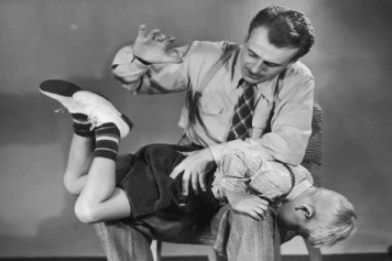
DO YOU SPANK YOUR KIDS? YOU MIGHT BE IN TROUBLE!
Parents who spank their children, are scared of bringing their children to therapy, for fear that their therapist will report them for child abuse. This makes me so sad. I have had friends call me before seeing a family therapist, who need reassurance that they aren’t going to get reported to CPS. This leads me to wonder, how many families are living with this fear, and consequently missing out on family treatment?
The article, “The Myth of the Wooden Spoon,” by CAMFT Attorney David Jensen, provides information and reassurances that I found so insightful I felt compelled to bring it to your attention and summarize some of the key points.
From my parent perspective, as one who occasionally spanks my children, I also do not want to live in fear of being reported for abuse. In order to combat these potential fears, I believe it’s important to understand what the law says. California’s Child Abuse and Neglect Reporting Act (CANRA) describes what constitutes physical child abuse. As a clinician for many years, I am a mandated reporter for CANRA. My understanding was that when a spanking results in a bruise and/or when spanking takes place with an object – this constitutes abuse. Well, it’s not that simple. For that I am thankful.
There was a case in the CA Court of Appeal in 2014, called Gonzalez v. Santa Clara County Department of Social Services that held that “a parental privilege to impose reasonable physical discipline upon a child” must be considered when child abuse is being considered. As Jensen well summarizes, “a spanking does not constitute Child Abuse.” (p.42)
According to Gonzalez there is a difference between reasonable parental discipline and unreasonable criminal discipline. So what is the difference:
- Is there a genuine motive for the spanking? A carefully considered spanking to bring your child back to obedience, is very different than an impulsive punishment that is terrorizing and intimidating for a child. Criminal spankings are often happening in homes where there is also other violence happening.
- Is there a reasonable occasion for the spanking? Did the child do something that warrants a spanking? Is the child displaying serious enough behavioral symptoms and have you tried other strategies to deal with the behavior?
- Is the spanking reasonable in kind and degree? What you want to consider here is what the age of the child is, the part of the body you are spanking on, the object you are using to spank, and the type of damage and injuries the child sustains.
As a parent, ask yourself the following questions:
- Are you eager to spank your child?
- Do you derive self-gratification from spanking your child?
- Is spanking the only form of discipline you use?
- Do you feel out of control when you spank?
- Do you spank regardless of what the situation may warrant?
If the answer to any of these questions is yes, consider getting some support for yourself. You can work on your own emotional triggers and broaden your resources so that you can be a responsible and accessible parent to your children. Give me a call: 619 352 0054
